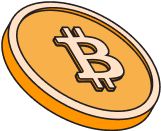How to Choose an Exchange to Buy and Trade Cardano
Selecting an exchange for trading Cardano involves evaluating several factors beyond just fees. Consider the exchange's payment options, security features, and user experience, along with the platform's liquidity and reputation. A thorough evaluation of these elements will help you choose the best platform for trading ADA.
Reputation Amongst ADA Traders
The reputation of an exchange within the Cardano community is a good indicator of its reliability and quality of service. A platform that is highly regarded by ADA traders is likely to be trustworthy and offer a positive trading experience. Check reviews and testimonials from other traders to gauge the platform's reputation.
Accessibility
Accessibility involves the ease of use and availability of the platform in different regions. A user-friendly interface and a well-designed mobile app can make a significant difference in your trading experience, especially for beginners. Additionally, check if the exchange is available in your country and supports your preferred language.
Liquidity of Crypto Assets
Liquidity is essential for trading Cardano efficiently. High liquidity means you can buy or sell ADA with minimal price slippage, ensuring that your orders are executed at your desired price. Exchanges with deep liquidity pools are preferable, as they offer a more stable and predictable trading environment.
Support
Effective customer support is crucial when trading Cardano, as issues may arise that require prompt resolution. Look for exchanges that offer 24/7 support through various channels such as live chat, email, or phone. Responsive support can help you quickly resolve problems and continue trading with minimal disruption.
User Interface
A well-designed user interface can greatly enhance your trading experience. An intuitive platform allows you to execute trades quickly and accurately, reducing the risk of errors. Whether you're a seasoned trader or a beginner, a clear and responsive interface is key to successful trading.
Trading Fees
Trading fees can significantly affect your returns, particularly for active traders. These fees usually consist of a percentage of each trade and can vary based on the exchange and trading volume. Some platforms offer reduced fees for high-volume traders or for those who use the exchange's native token, so it's important to compare fee structures to find the best deal.
Payment Methods
The payment methods supported by an exchange are a critical factor to consider. Exchanges typically offer various options, including bank transfers, credit/debit cards, and cryptocurrency deposits. Having multiple payment methods can provide flexibility and convenience, especially when depositing or withdrawing funds quickly.
Security
Security is a top priority when trading Cardano. A secure exchange will offer robust security measures such as two-factor authentication (2FA), cold storage for digital assets, and regular security audits. Ensuring the platform has a strong security framework can help protect your funds and personal information from potential threats.
Types of Cardano Exchanges and Trading Platforms
Cardano (ADA) can be traded on a wide variety of exchanges and trading platforms, each designed with unique features that cater to different types of traders. These platforms range from user-friendly options ideal for beginners to more advanced exchanges that offer sophisticated tools for experienced traders. Some platforms may prioritize low fees and high liquidity, while others might offer enhanced security features or a broader range of trading pairs. Understanding the distinctions between these platforms, including their strengths and limitations, is crucial in selecting the one that best aligns with your specific trading style and goals, ensuring a more efficient and profitable trading experience with Cardano.
Hybrid Exchanges
Hybrid exchanges combine elements of centralized and decentralized platforms, offering users the benefits of both worlds. They provide the security and control of decentralized exchanges with the liquidity and convenience of centralized platforms. Hybrid exchanges are ideal for those who value security but also want a seamless trading experience.
Fiat-to-Crypto Exchanges
Fiat-to-crypto exchanges allow users to purchase Cardano using traditional currencies like USD or EUR. These platforms are user-friendly and are typically the first stop for new traders looking to enter the cryptocurrency market. They provide an easy gateway into the world of crypto by offering direct fiat-to-ADA conversions.
Copy Trading Platforms
Copy trading platforms are a unique type of trading platform that allows users to automatically replicate the trades of experienced traders. For Cardano (ADA) enthusiasts, these platforms provide an opportunity to benefit from the strategies of successful traders without needing to actively manage their own trades. By following top-performing traders, users can potentially achieve similar returns, making copy trading an attractive option for those who may be new to trading or who prefer a more hands-off approach. These platforms often include features such as performance tracking and risk management tools, helping users make informed decisions while trading Cardano.
OTC (Over-the-Counter) Platforms
OTC platforms facilitate large trades of Cardano between buyers and sellers directly, bypassing traditional exchanges. These platforms are ideal for high-net-worth individuals or institutional traders who want to execute large transactions without affecting the market price. OTC platforms typically offer personalized service and lower slippage.
Staking Platforms
Staking platforms allow Cardano holders to participate in the network's proof-of-stake consensus mechanism and earn rewards. These platforms not only facilitate staking but often provide additional services like ADA trading, lending, and borrowing. Staking platforms are suitable for long-term holders looking to generate passive income. In addition to Cardano, many of these platforms also support Ethereum staking, allowing ETH holders to earn rewards by contributing to Ethereum's proof-of-stake network. This makes these platforms versatile for users who hold both ADA and ETH and are interested in maximizing their passive income potential.
How to Start Trading ADA
To begin trading Cardano (ADA), it's essential to follow a step-by-step process that ensures you are well-prepared and secure in your transactions. By understanding each stage of the trading process, from signing up on an exchange to withdrawing your funds, you can trade ADA with confidence and efficiency. Here's a comprehensive guide to get you started with trading ADA, covering everything from account setup to safeguarding your assets.
- Sign Up: Select a Cardano exchange and create an account by providing your email, setting up a password, and completing any required identity verification.
- Deposit Funds: Fund your account using your preferred payment method, such as a bank transfer, credit card, or cryptocurrency deposit.
- Choose Trading Pair: Select the ADA trading pair you wish to trade, such as ADA/USD or ADA/BTC.
- Place Order: Choose whether to place a market or limit order, and specify the amount of ADA you want to buy or sell.
- Confirm Trade: Review the trade details and confirm your order.
- Withdraw Funds: Once your trade is complete, withdraw your ADA to your personal wallet for added security.
History of Cardano
Cardano was launched in 2017 by Charles Hoskinson, one of the co-founders of Ethereum, with the goal of creating a more secure and scalable blockchain platform. Cardano stands out for its scientific approach, with its development being backed by peer-reviewed academic research. The blockchain operates on a proof-of-stake consensus mechanism called Ouroboros, which is designed to be energy-efficient while maintaining high security. Cardano's native cryptocurrency, ADA, has grown in popularity due to its unique approach and its potential for smart contracts and decentralized applications (dApps).
The Future of Cardano in the Cryptocurrency Market
Cardano's future in the cryptocurrency market looks promising, thanks to its strong emphasis on research-driven development and its ongoing upgrades, such as the Alonzo hard fork that introduced smart contracts to the network. As the platform continues to evolve, its focus on scalability, sustainability, and interoperability may position it as a leading blockchain for enterprise applications. With growing adoption and a dedicated community, Cardano has the potential to play a significant role in the future of decentralized finance (DeFi) and beyond.
Exchange Fees When Buying and Selling ADA
Understanding the various fees associated with trading Cardano (ADA) is essential for effectively managing your costs and maximizing your returns. These fees can include transaction fees, withdrawal fees, deposit fees, and sometimes hidden charges, all of which can significantly impact your overall profitability. By being aware of these costs and how they vary across different exchanges, you can make more informed decisions and choose the most cost-effective platforms. This knowledge not only helps you avoid unnecessary expenses but also enables you to develop better trading strategies, ensuring that you maximize your potential profits while minimizing costs when trading ADA.
Transaction Fees
Transaction fees are charged on each trade you make, usually as a percentage of the trade's value. Some exchanges offer tiered fee structures where fees decrease as your trading volume increases, or if you use the exchange's native token to pay fees. These fees can add up, especially for frequent traders.
Deposit Fees
Some exchanges charge fees when you deposit funds into your account, particularly for certain payment methods like credit cards or bank transfers. These fees can affect your initial investment, so it's advisable to choose a platform with low or no deposit fees, especially for large deposits.
Withdrawal Fees
Withdrawal fees are incurred when you transfer ADA from the exchange to your personal wallet. These fees can vary significantly between exchanges and are often a fixed amount rather than a percentage. It's important to consider these fees when planning your trading strategy, particularly if you plan to move your ADA frequently.
Inactivity Fees
Inactivity fees are charged by some exchanges if your account remains dormant for a specified period. These fees can reduce your balance over time, so it's essential to be aware of them, particularly if you plan to hold ADA for the long term without actively trading.
The Unique Value Proposition of Cardano
Cardano offers a unique value proposition in the cryptocurrency market through its commitment to scientific research and formal verification methods. Unlike many other blockchains, Cardano's development is grounded in peer-reviewed research, aiming to create a highly secure and scalable ecosystem. This focus on security and sustainability makes Cardano appealing for long-term investment and enterprise solutions, influencing how and where traders might choose to trade ADA.
FAQ: Cardano Exchange Platforms
What makes Cardano different from other cryptocurrencies on exchanges?
Cardano distinguishes itself from other cryptocurrencies through its scientific approach to blockchain development, focusing on peer-reviewed research and formal verification methods. This emphasis on security and scalability makes it a preferred choice for enterprise applications and long-term investments, which can influence how and where ADA is traded.
Can I trade Cardano on decentralized exchanges?
Yes, Cardano can be traded on decentralized exchanges (DEXs), which allow peer-to-peer trading without a central authority. These platforms offer greater privacy and control over your funds, but may have lower liquidity and fewer trading pairs compared to centralized exchanges.
How does staking work on Cardano trading platforms?
Staking on Cardano trading platforms involves delegating your ADA to a staking pool, which helps secure the network and validate transactions. In return, you earn rewards in the form of additional ADA. Some exchanges offer integrated staking services, making it easy to participate without needing to manage your own staking node.
What should I look for in a Cardano mobile trading app?
When choosing a Cardano mobile trading app, look for features like real-time price tracking, intuitive navigation, and secure login options like biometrics or two-factor authentication. A good mobile app should also offer the same trading tools and functionalities as the desktop version, ensuring you can manage your trades effectively on the go.
Is it possible to automate Cardano trading?
Yes, many exchanges support automated trading for Cardano through bots or APIs. These tools allow you to set specific criteria for buying and selling ADA, which the bot executes on your behalf. Automated trading can help you take advantage of market opportunities without constant monitoring, but it's important to understand the risks and configure the bot properly.
What are the best practices for securing my Cardano on an exchange?
To secure your Cardano on an exchange, use strong, unique passwords, enable two-factor authentication (2FA), and consider using a hardware wallet for long-term storage. Additionally, only keep the amount of ADA you need for trading on the crypto exchange, and withdraw the rest to your personal wallet for added security.
Are there any risks associated with trading Cardano on new exchanges?
Trading Cardano on new or lesser-known exchanges can carry risks, such as lower liquidity, potential security vulnerabilities, and the possibility of the exchange going offline. It's important to thoroughly research any platform before trading, ensuring it has a solid reputation, strong security measures, and a clear regulatory framework.
What are the benefits of using a fiat-to-crypto exchange for Cardano?
Fiat-to-crypto exchanges allow you to buy Cardano directly with traditional currencies like USD or EUR, making it easy for newcomers to enter the cryptocurrency market. These platforms typically offer user-friendly interfaces and are regulated, providing an added layer of security and compliance.
How can I minimize fees when trading Cardano?
To minimize fees when trading Cardano, consider using an exchange that offers lower trading fees, particularly for high-volume traders or those using the exchange's native token. Additionally, be mindful of deposit and withdrawal fees, and choose a platform that aligns with your trading frequency and payment methods to reduce overall costs.
Can I earn rewards for holding Cardano on certain exchanges?
Yes, some exchanges offer staking or lending programs that allow you to earn rewards for holding Cardano. These rewards are typically paid in ADA and can be an attractive option for long-term holders looking to generate passive income. However, be sure to review the terms and potential risks before participating.
Conclusion: The Best ADA Buy & Sell Platforms Ranked by Bitcoin.com
Selecting the best platform for buying and selling Cardano is crucial for optimizing your trading experience. Consider factors like fees, security, and ease of use when making your decision. Our rankings of the top ADA platforms are regularly updated to reflect the latest market developments, so be sure to check back frequently for the most current information.
Business & Partnership Enquires
For business or partnership queries, please contact us through affiliates@bitcoin.com. Our marketing experts will assist you as soon as possible.


























